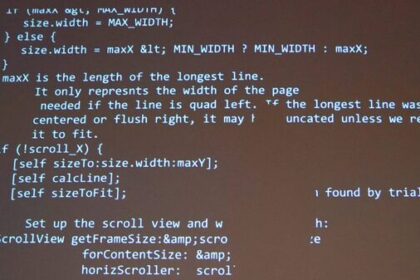AI isn’t just another tool — it’s a catalyst that can help us lead more purposeful and abundant lives.In the past decade, as a social impact strategist, I have watched how artificial intelligence (AI) and other disruptive technologies are rapidly transforming our world. But as we enter this new era, the real challenge isn’t about technology — it’s about leadership. We need to rethink what it means to lead, live, and unlock human potential.
A central question arises: “Who am AI?” It’s a modern twist on the ancient question, “Who am I?” While the original question focuses on inner transformation, “Who am AI?” asks us to consider how we can integrate our true selves with the vast possibilities AI offers, allowing us to redefine success, purpose, and meaning.
AI isn’t just another tool — it’s a catalyst that can help us lead more purposeful, abundant lives. But as we navigate this period of rapid innovation, preserving our authenticity is more important than ever. The concept of “Who am AI?” offers a framework, built on four principles rooted in ancient wisdom, for using AI to enhance our humanity:
These principles can help us ensure that AI serves us, rather than diminishes our humanity.
Growing up, I asked myself, “What is my purpose?” I realized early on that true leadership is not about personal gain but about serving a cause greater than yourself. Today, AI tools like DigitalDeepak.ai and platforms like Millionways help us explore this type of leadership. These technologies guide personal growth, well-being, and align our strengths with the needs of our communities. AI is no longer just a digital assistant — it can become a partner in our leadership journey.
Imagine the possibilities of empowering people from all walks of life to become leaders who serve their communities with authenticity and courage.
In 2010, I worked on a global health initiative in the slums of Mumbai. The extreme poverty I saw was heartbreaking, but the resilience and grace of the people there left a lasting impact on me. It taught me that leadership isn’t about wealth or status; it’s about being respected and loved by the people you serve.
This kind of audacious leadership — rooted in service and adaptability — is what we need in today’s world.
Many of us chase material success, but as historian Yuval Noah Harari suggests, AI will reshape our world in ways we’ve never seen before. This shift requires us to rethink not only how we live but also how we find meaning. Inner transformation — requiring grit, discipline, and the ability to evolve — will be key.
AI can amplify our fears, but if applied thoughtfully, it can be a powerful tool for good. It can help us connect more deeply with others and serve our communities. AI’s true promise lies not in its technical capabilities but in its potential to enhance our empathy, creativity, and sense of purpose.
In a world filled with uncertainty, fear can prevent us from embracing the opportunities AI offers. But just as the resilient communities in Mumbai chose to focus on what they could give rather than what they lacked, we too must see AI as a tool for transformation.
By integrating AI with human values, we have the chance to unlock our full potential. Audacious leadership, grounded in service, community, and purpose, will allow us to lift underserved communities and create a future of shared prosperity.
As we gather at forums like the 79th UNGA Summit, let’s remember our responsibility to the billions still underserved. By choosing love over fear and abundance over scarcity, we can create tangible, positive outcomes for both humanity and the planet.
In this new era where AI and humanity merge, the real question is: Who will we become, together?
The author is a social impact strategist. He founded We The Planet, Audacity, and X Impact Group, and serves as Chief Impact Officer at the Chopra Foundation and Director of Social Impact at Stanford’s CCARE.



